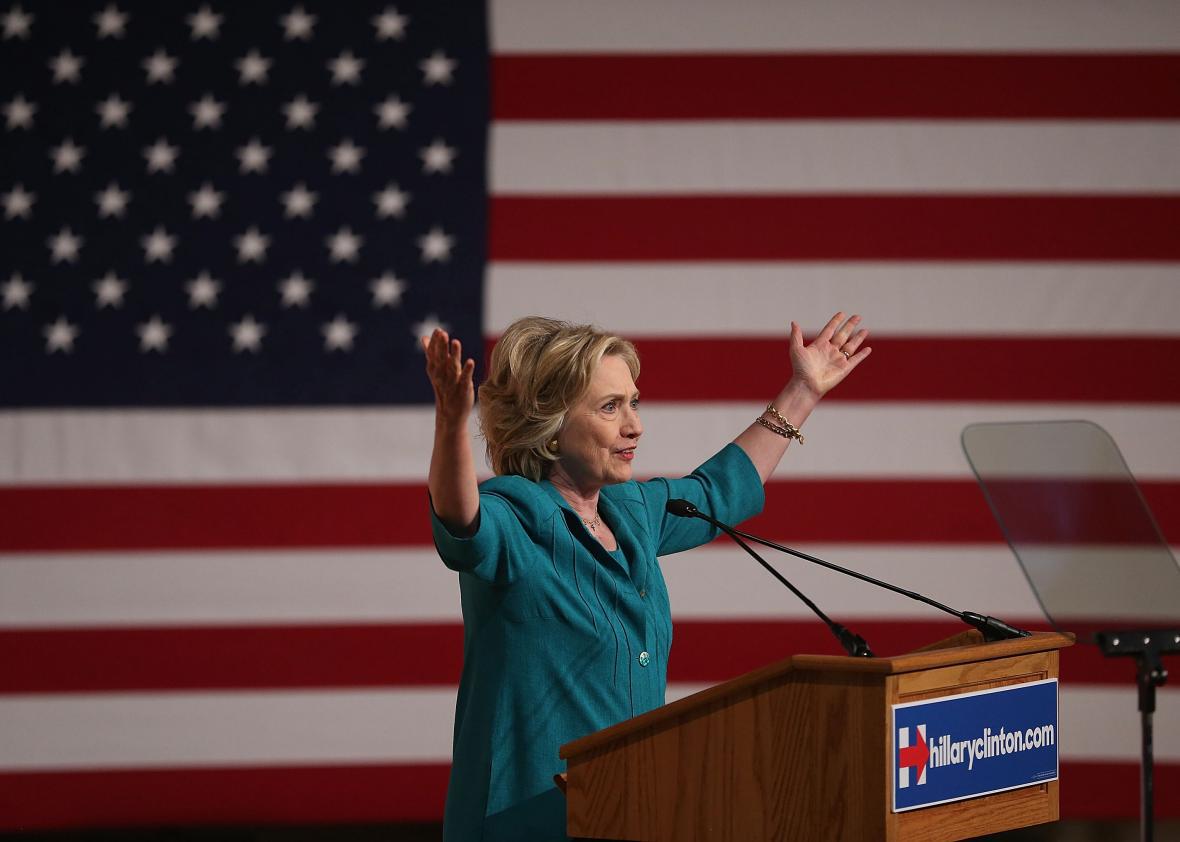Hillary Clinton went into Jeb Bush and Marco Rubio’s backyard on Friday to offer her support for the normalization of diplomatic relations with Cuba and to call on Congress to lift the decades-old trade embargo on the communist country.
While she has written about lifting the embargo before, this speech was the clearest indication yet that she plans to make a campaign issue out of a topic that presidential candidates, particularly democrats, have long preferred to avoid.
In the speech at Florida International University in Miami, Clinton called the embargo a “failed policy” that is “unintentionally helping the regime keep Cuba a closed society.” She continued:
The Cuba embargo needs to go, once and for all. We should replace it with a smarter approach that empowers the Cuban private sector, Cuban civil society, and the Cuban-American community to spur progress and keep pressure on the regime.
Today I am calling on Speaker [John] Boehner and Senator [Mitch] McConnell to step up and answer the pleas of the Cuban people. By large majorities, they want a closer relationship with America. They want to buy our goods, read our books, surf our web, and learn from our people. They want to bring their country into the 21st century. That is the road toward democracy and dignity. We should walk it together.
Should congress fail to act, Clinton vowed that as president she would “use executive authority to make it possible for more Americans to visit Cuba.”
Clinton, who back in 2008 criticized then-primary opponent Obama for his promises to engage with Catro’s government, more or less took ownership of the Obama administration’s recent Cuba moves in the speech. She also reiterated what she had said in her book Hard Choices about having recommended to the president that he take a look at ending the embargo at the end of her tenure as secretary of state.
In the speech, she pledged more support to democratic reforms in Cuba and opponents of the Castro regime. In one of the speech’s more interest moments, she gave a nod to Miriam Leiva—the founder of an advocacy group of wives and female relatives of jailed dissidents that had previously criticized Clinton for calling to end the embargo—who was in the crowd. Clinton also praised the Cuban-American community in Miami as a “compelling advertisement for the benefits of democracy and an open society.”
As for her Republican opponents, she accused them of viewing “Cuba and Latin American more broadly through an outdated cold war lens” as a “land of crime and coups” rather than “free markets and free people.” Should the recent moves be reversed, she suggested, “no one will benefit more than the hardliners in Havana.”
With frequent references to the power of free-market capitalism to transform societies, the speech seemed designed to put Republican candidates in the position of defending the increasingly unpopular embargo. The embargo was once a third rail of American electoral politics, but no longer. A healthy majority of Americans support ending the embargo, including 59 percent of Republicans. Even a narrow majority of Cuban-Americans support the Obama administration’s recent moves. Obama won the once staunchly Republican Cuban vote in Florida in 2012. While a large portion of that community strongly opposes lifting the embargo, Clinton is clearly betting that by keeping the emphasis on the right of Cuban-Americans to maintain contact with their families and the power of good old American capitalism to transform the island, she can keep their votes.
A bill proposed by a bipartisan group of senators to lift the embargo altogether seems unlikely to see a vote in the current congress, but politically, Clinton may have a winning issue either way. Staunch opponents of normalizing relations would probably never vote for the Democrat anyway. If the embargo stays, she can continue to criticize a policy that an increasing majority of Americans don’t see the point of. If it’s lifted, she seems to be angling to take at least partial credit for it.
